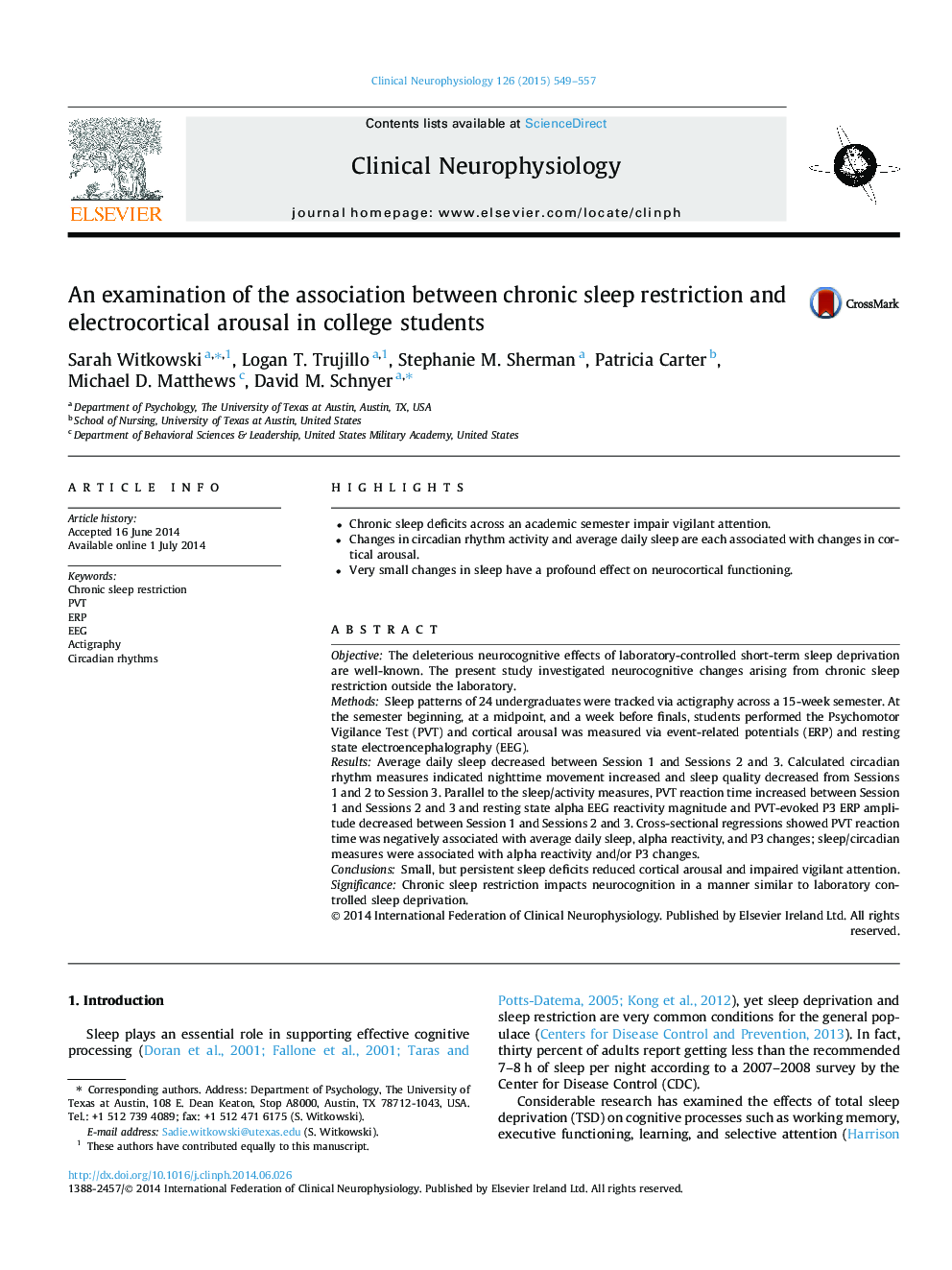| Article ID | Journal | Published Year | Pages | File Type |
|---|---|---|---|---|
| 3043715 | Clinical Neurophysiology | 2015 | 9 Pages |
•Chronic sleep deficits across an academic semester impair vigilant attention.•Changes in circadian rhythm activity and average daily sleep are each associated with changes in cortical arousal.•Very small changes in sleep have a profound effect on neurocortical functioning.
ObjectiveThe deleterious neurocognitive effects of laboratory-controlled short-term sleep deprivation are well-known. The present study investigated neurocognitive changes arising from chronic sleep restriction outside the laboratory.MethodsSleep patterns of 24 undergraduates were tracked via actigraphy across a 15-week semester. At the semester beginning, at a midpoint, and a week before finals, students performed the Psychomotor Vigilance Test (PVT) and cortical arousal was measured via event-related potentials (ERP) and resting state electroencephalography (EEG).ResultsAverage daily sleep decreased between Session 1 and Sessions 2 and 3. Calculated circadian rhythm measures indicated nighttime movement increased and sleep quality decreased from Sessions 1 and 2 to Session 3. Parallel to the sleep/activity measures, PVT reaction time increased between Session 1 and Sessions 2 and 3 and resting state alpha EEG reactivity magnitude and PVT-evoked P3 ERP amplitude decreased between Session 1 and Sessions 2 and 3. Cross-sectional regressions showed PVT reaction time was negatively associated with average daily sleep, alpha reactivity, and P3 changes; sleep/circadian measures were associated with alpha reactivity and/or P3 changes.ConclusionsSmall, but persistent sleep deficits reduced cortical arousal and impaired vigilant attention.SignificanceChronic sleep restriction impacts neurocognition in a manner similar to laboratory controlled sleep deprivation.
